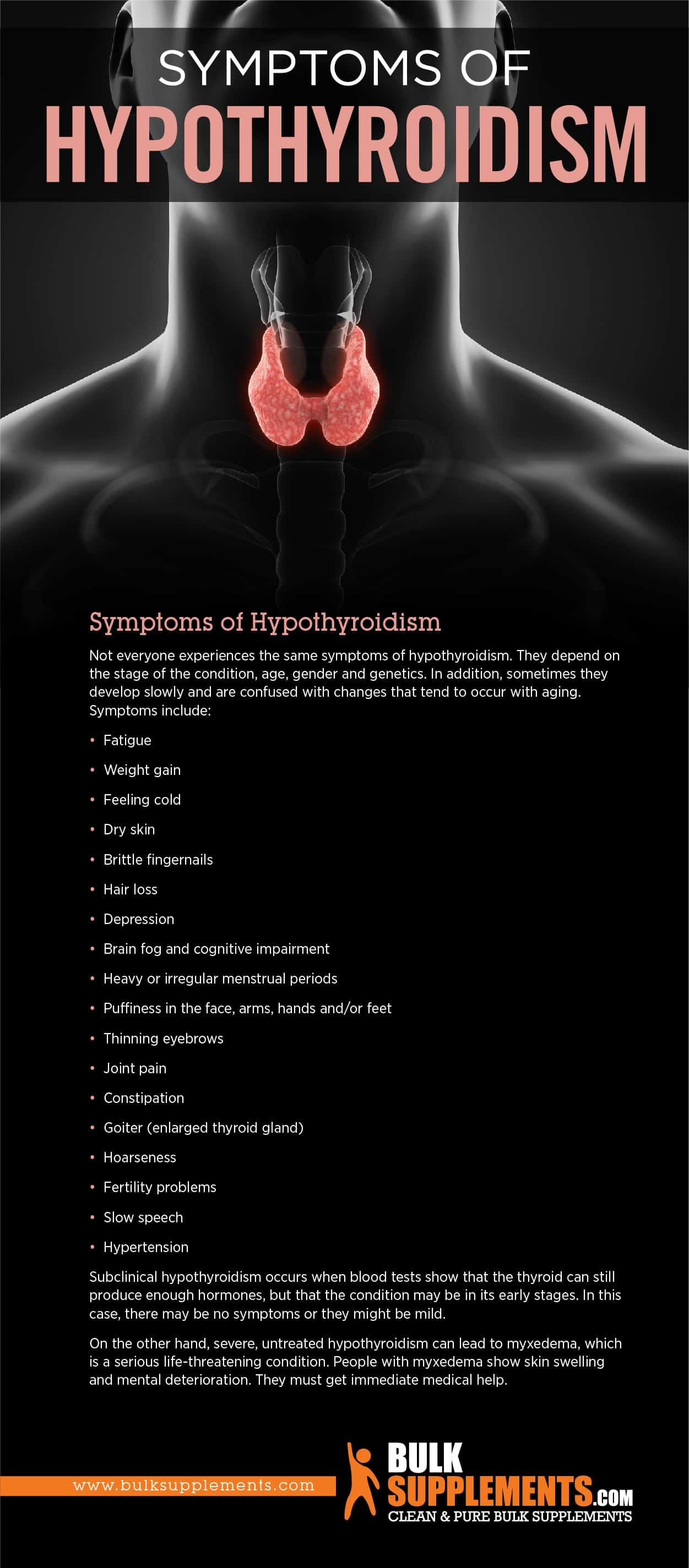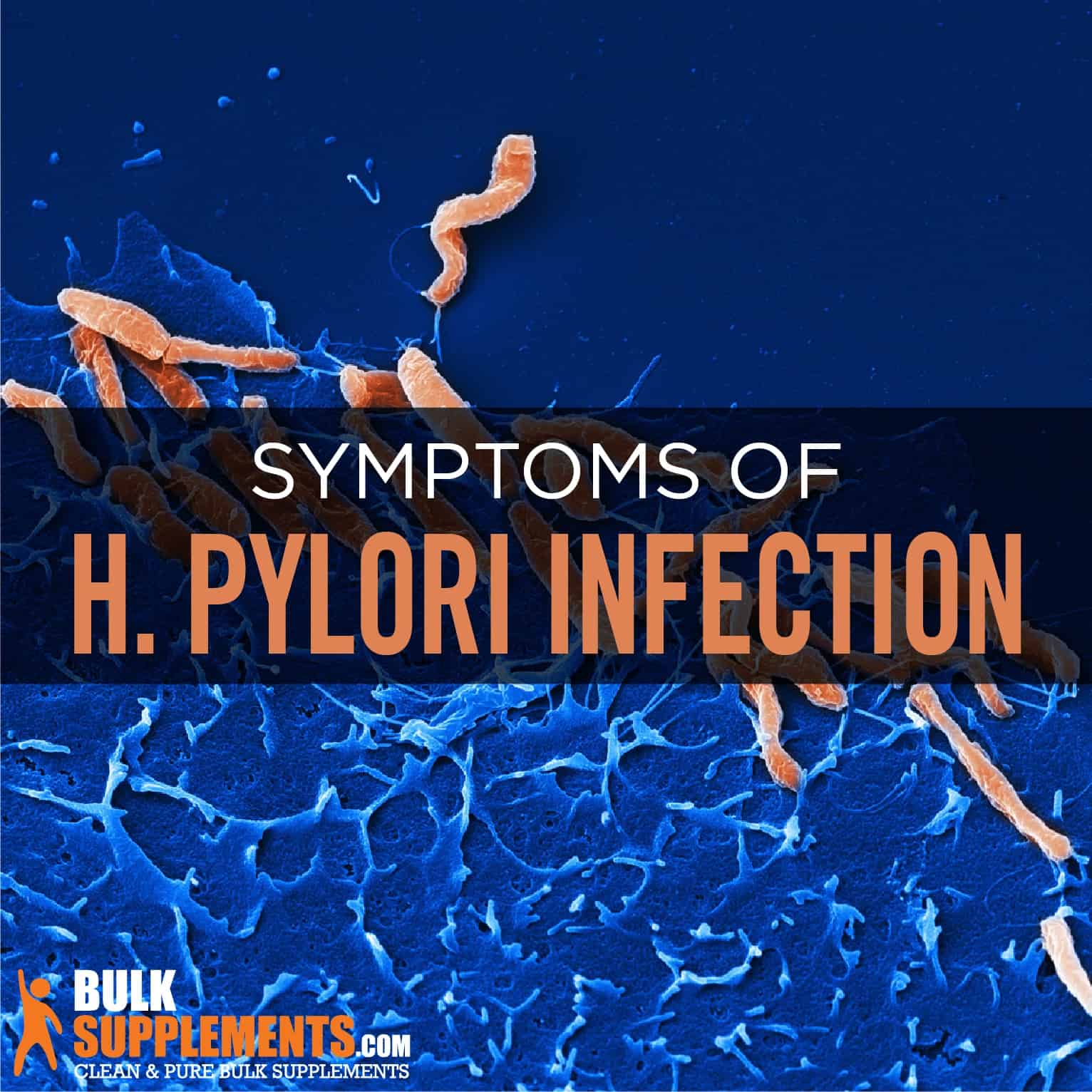Hypothyroidism: Symptoms, Causes & Treatment
by James Denlinger Digital Marketing StrategistWhat Is Hypothyroidism?
Hypothyroidism occurs when the thyroid gland, a small organ located in the front of the neck, fails to produce enough hormones. Although the thyroid is modest in size, it’s very powerful. The hormones it produces affect the way the body utilizes its energy. When not enough hormones are produced, functions like metabolism, growth and development slow down.
The pituitary gland located in the brain determines levels of the two main thyroid hormones, triiodothyronine (T3) and thyroxine (T4). It secretes thyroid-stimulating hormone (TSH) to tell the thyroid to produce more T3 and T4 as needed. Then, once the thyroid receives the signal to start making more hormones, it uses iodine that we get from food to help make them.
The thyroid depends on many things like the brain, the pituitary gland and iodine levels to function properly. However, a lot can go awry. About 5 percent of the general population has hypothyroidism and that number jumps to 20 percent for women over the age of 60.
A variety of factors can cause hypothyroidism, and its symptoms vary from person to person. After diagnosis by a blood test, interventions like changes in lifestyle, medication and/or supplements can effectively treat it. Left untreated, though, it can cause significant health problems.
Symptoms of Hypothyroidism
Not everyone experiences the same symptoms of hypothyroidism. They depend on the stage of the condition, age, gender and genetics. In addition, sometimes they develop slowly and are confused with changes that tend to occur with aging. Symptoms include:
- Fatigue
- Weight gain
- Feeling cold
- Dry skin
- Brittle fingernails
- Hair loss
- Depression
- Brain fog and cognitive impairment
- Heavy or irregular menstrual periods
- Puffiness in the face, arms, hands and/or feet
- Thinning eyebrows
- Joint pain
- Constipation
- Goiter (enlarged thyroid gland)
- Hoarseness
- Fertility problems
- Slow speech
- Hypertension
Subclinical hypothyroidism occurs when blood tests show that the thyroid can still produce enough hormones, but that the condition may be in its early stages. In this case, there may be no symptoms or they might be mild.
On the other hand, severe, untreated hypothyroidism can lead to myxedema, which is a serious life-threatening condition. People with myxedema show skin swelling and mental deterioration. They must get immediate medical help.
 PIN IT
PIN ITCauses and Risk Factors of Hypothyroidism
There are a few different underlying causes of hypothyroidism.
Congenital hypothyroidism, also called cretinism, occurs when a baby is born with low levels of thyroid hormones. This can be caused by a thyroid gland that didn’t form properly in utero or because the mother was iodine deficient during pregnancy. It causes problems with growth and brain development.
Another type is autoimmune hypothyroidism. Sometimes the body’s immune system attacks its own thyroid gland, causing inflammation and damage to the organ. Autoimmune types of hypothyroidism include Hashimoto’s disease (the most common type), and can also occur secondary to other autoimmune conditions such as juvenile diabetes or rheumatoid arthritis.
Pregnancy can also impair thyroid function. Increased demands are placed on a woman’s metabolism during pregnancy and sometimes the thyroid cannot keep up. Ideally, thyroid function returns to normal within a few months postpartum. Occasionally, though, it doesn’t, leading to a more chronic condition.
Inflammation of the thyroid gland for any reason is called thyroiditis. When the thyroid becomes inflamed, it can initially increase circulating levels of hormones. After a few months, however, this surge in circulating hormones can swing in the other direction and create a hypothyroid state.
Occasionally, a deficiency in the mineral iodine is to blame. The body must have iodine to make T3 and T4. Iodine can only be obtained through the diet and sometimes people just don’t take in enough of it. Or, they may get enough iodine but also eat foods that inhibit its absorption. This usually results in an enlarged thyroid gland (called a goiter) and reduced function. Thanks to the availability of iodized salt, however, this isn’t as common as it once was.
Finally, viral illness, certain medications, prior thyroid surgery or radiation therapy can also reduce thyroid function.
Treatment for Hypothyroidism
Treatment of this condition depends on the underlying cause. Often, medications, lifestyle adjustments and/or supplements are effective in managing hypothyroidism.
Medication
Medications such as levothyroxine that replace the hormone thyroxine (T4) are the most common to treat hypothyroidism. Sometimes a synthetic T3 is added to the T4. More is not better, however, and monitoring symptoms is important for finding the right dose. Too much T4 can make people feel sleepless, sweaty, jittery and uncomfortable.
Diet and Lifestyle
Exercise
As hard as it may be to get moving when you’re feeling fatigued, exercise is important for managing weight and insulin levels, two factors that are affected with hypothyroidism.
Healthy Diet
Diets that emphasize nutrient-dense, healthful foods not only promote a healthy weight and blood sugar, but may also reduce symptoms of autoimmune hypothyroidism. One particular diet called the Autoimmune Protocol Diet has shown promise among women with Hashimoto’s disease, for example.
Minimize Soy
Soy products contain compounds that may interfere with iodine absorption and thyroid function. Studies currently question the clinical significance of this effect, but it appears that, in some people, soy can induce or exacerbate hypothyroidism.
Reduce Stress
Stress triggers chemical reactions in the body that can alter the way the thyroid gland works and may worsen autoimmune types of thyroid conditions.
Supplements for Hypothyroidism
With the okay from your doctor, dietary supplements can support the thyroid gland and/or complement conventional treatment.
A word of caution about biotin — this B vitamin is widely available in multivitamins and many people use it as a stand-alone supplement to improve the appearance of hair and nails. However, researchers are finding that it interferes in lab tests that check for thyroid function, causing false-positive results for an overactive thyroid. Let your doctor know about all the supplements you’re taking, especially biotin.
Zinc
This important trace mineral plays countless roles in the body, especially with the immune system. Zinc also promotes thyroid health, and conversely, a healthy thyroid is necessary to absorb dietary zinc. A little zinc goes a long way, so follow instructions on the label or check with your doctor before using.
DHEA
DHEA is a naturally occurring compound that aids reproductive and cognitive health. Studies suggest that DHEA levels may be low in people with an underactive thyroid. This supplement can be taken in dosages of 5 mg daily and increased to 25 mg over a 1-2-week period as tolerated. Because of the varying levels of sensitivity, DHEA levels should be checked before starting and then again every 6 months.
Taurine
Taurine is an amino acid that helps improve energy and promote heart health. According to animal and human studies, taurine levels can be low with hypothyroidism and supplementing may improve the organ’s function. It should be taken in doses of 500 mg twice a day, or as directed by your doctor.
Magnesium
Magnesium may promote dental, bone and heart health. Studies also found a connection between low serum magnesium levels and autoimmune thyroiditis.
The Bottom Line
The thyroid gland, while small, has the important job of producing the hormones T3 and T4, which regulate the metabolism. When it’s not producing enough thyroid hormones, metabolism and bodily functions slow down. This causes a spectrum of symptoms ranging from mild fatigue and subtle weight gain to extreme disability and even death. The causes of hypothyroidism are varied and can include congenital factors, autoimmune responses, pregnancy or medications, for example. Treatment often requires medication that is closely monitored by a physician. A healthy diet that provides a variety of vitamins and minerals, exercise, stress management and dietary supplements can contribute to overall health and offset some of the effects of hypothyroidism. Consult with your doctor before starting any new supplements.
Sponsor Ads
Created on Mar 18th 2020 20:34. Viewed 399 times.




